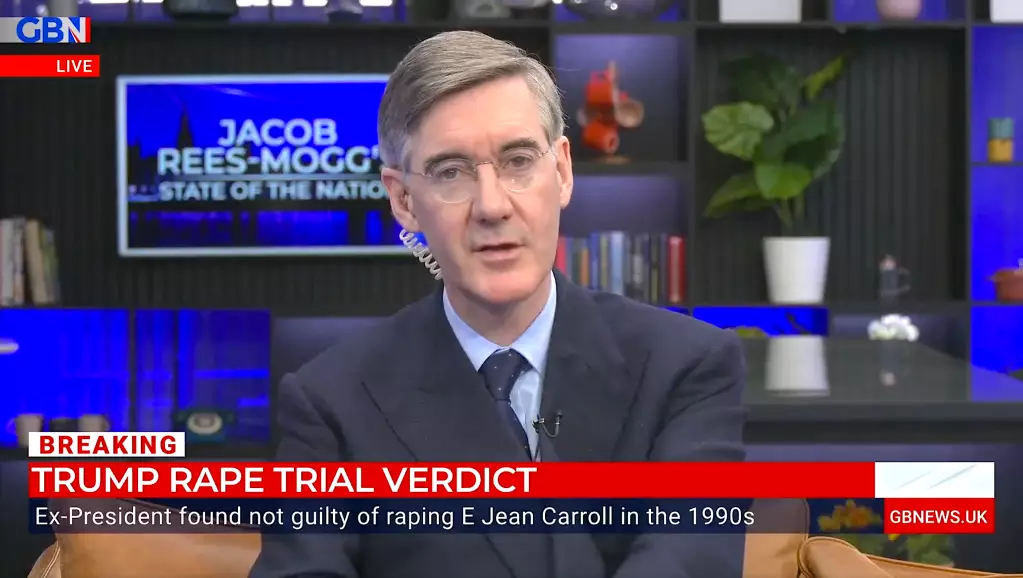In a notable shift within the UK broadcasting landscape, GB News has secured a significant victory against media regulator Ofcom. The case revolved around the network’s presenter Jacob Rees-Mogg and a report concerning legal proceedings involving Donald Trump. The High Court’s ruling concluded that Ofcom had operated unlawfully in its determination that GB News breached broadcasting codes during segments of Rees-Mogg’s show, State Of The Nation. This development not only highlights the ongoing contention surrounding media regulations but also underscores the growing influence of alternative news outlets in an evolving media environment.
At the heart of Ofcom’s argument was a critical rule in the UK broadcasting code, specifically rule 5.3, which states that politicians should not serve as newsreaders or reporters unless there exists a compelling editorial justification. Ofcom had interpreted segments from the State Of The Nation program—where Mogg discussed the guilty verdict against Trump concerning allegations from E. Jean Carroll—as crossings into the territory typically reserved for objective news reporting. However, the High Court contended that Ofcom conflated the definitions of “news programme” and “current affairs,” asserting that State Of The Nation was primarily a current affairs show and therefore exempt from rule 5.3.
This differentiation is pivotal, as it raises questions about how news programs and current affairs shows are categorized and the implications of those classifications on media content and regulation. The court’s decision reinforces the notion that interpretive flexibility exists within broadcasting standards and that jurisdictional boundaries between different types of programming need clearer definitions.
GB News CEO Angelos Frangopoulos characterized the ruling as a monumental endorsement of free speech in the UK. He emphasized that this judgment illustrates GB News’ commitment to offering a platform that represents the diverse viewpoints of British communities, thereby resonating with a growing audience base. Frangopoulos’ statements underline a crucial point: the outcome is not merely a legal victory; it symbolizes a broader stance against regulatory overreach and a call for a media landscape that champions diverse narratives.
Furthermore, he urged a reevaluation of the standards set by Ofcom, calling attention to the need for regulations that reflect contemporary broadcasting realities where politicians commonly engage as commentators and hosts. His comments tap into a larger discourse concerning the role of traditional regulatory bodies in an era marked by rapid technological advancements and shifts in viewer preferences.
In light of this ruling, Ofcom acknowledged the importance of the court’s direction regarding due impartiality within broadcast news. The regulator also signaled its intent to reevaluate rule 5.3, which has been criticized for being outdated and ill-suited for today’s media environment. The original provisions, crafted nearly two decades ago, did not anticipate the prevalence of lawmakers hosting news programs, making the current considerations all the more relevant.
The response from Ofcom indicates a willingness to adapt and clarify its regulatory framework, a step that could significantly influence how broadcasters operate and how politicians engage with the media. The potential revision of rule 5.3 could pave the way for more flexible programming structures, accommodating a wider array of voices while still adhering to standards of impartiality.
This court case not only marks a critical development for GB News but also signifies a potential revolution in the British broadcasting industry. As viewers increasingly turn to alternative media platforms for news and commentary, established outlets may find themselves pressured to adapt or innovate to maintain relevance. The ramifications of this ruling extend beyond GBN’s immediate circumstances, as it invites further scrutiny on broadcasting norms and the interplay between media legislation and the evolving landscape of public discourse.
The perception of how political figures participate in media will likely shift, allowing for a broader interpretation of what constitutes responsible commentary. Ultimately, this ruling has set a precedent that could inform future legal battles concerning media regulation, free speech, and the role of politicians in shaping public opinion through various broadcasting mediums.
